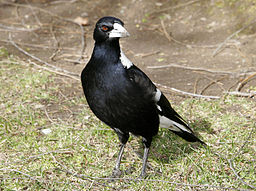Identify Pica Disorder
 Do you know someone who craves and enjoys eating things such as dirt, chalk, coffee grounds, cigarette ashes or other items not considered food?
Do you know someone who craves and enjoys eating things such as dirt, chalk, coffee grounds, cigarette ashes or other items not considered food?
If so, this person may be suffering from an eating disorder called pica disorder. The word “pica” is Latin for “magpie,” which is a bird known best for eating everything and anything.
While this disorder most often affects small children, pregnant women, and people with psychiatric disturbances or developmental disabilities, anyone can be affected by pica, and treatment is needed particularly if the craved substance is toxic and can cause bodily harm when ingested.
How Is Pica Diagnosed?
If a person eats a “non-food” item for one month or longer, the person is considered to have pica disorder, according to Anorexia Nervosa and Related Eating Disorders (ANRED).
Who Is Affected by Pica?
Pica is most commonly found in:
- • Children: About 10 to 20 percent of children may have pica at some point during their childhood.
- • Pregnant women: Up to 68 percent of pregnant women have pica disorder according to ANRED.
- • People with developmental disabilities and/or psychiatric disturbances: People with these conditions should be monitored closely to make sure they are not eating inappropriate items.
- • People with family or certain ethnic customs: In some people, pica is passed down by folk traditions. For example, some people eat clay or dirt daily because they believe that it will help them incorporate magical spirits into their bodies. Others believe eating clay suppresses morning sickness when pregnant.
What Are the Most Common Non-Food Items Consumed?
Generally, having pica disorder means that a person craves and eats anything that is not considered to be food. Some of the more common cravings that people with pica disorder have include: dirt, clay, paint chips, plaster, laundry starch, coffee grounds, cigarette ashes, burnt match heads and rust.
Source: ANRED
 Eating Disorder Self Test. Take the EAT-26 self test to see if you might have eating disorder symptoms that might require professional evaluation. All answers are confidential.
Eating Disorder Self Test. Take the EAT-26 self test to see if you might have eating disorder symptoms that might require professional evaluation. All answers are confidential.